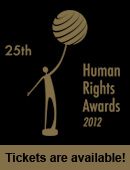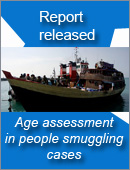Same-Sex: Same Entitlements: Chapter 16
Chapter 16 Additional Federal and State Legislation
Download Chapter 16: [ PDF] [ Word ]
- 16.1 What is this chapter about?
- 16.2 What additional federal legislation may discriminate against same-sex couples and their children?
- 16.3 What additional state legislation may still discriminate against same-sex couples and their children?
- 16.4 What are the Inquiry’s recommendations regarding these additional federal and state laws?
16.1 What is this chapter about?
As part of the Inquiry’s audit of federal, state and territory laws, the Inquiry has identified a range of laws which potentially discriminate against same-sex couples and families, but do not fall within the previous topic-specific chapters.
The following list of legislation sets out those laws, identifies the potentially discriminatory definitions and notes some of the substantive financial and work-related provisions which rely on those terms.
The laws cover a range of topics including insurance, trusts, foreign investment restrictions, investment disclosure rules, bankruptcy, licensing arrangements and diplomatic privileges, amongst others.
Not all of the legislation will be to the disadvantage of same-sex couples, but it all appears to treat same-sex and opposite-sex families differently.
For some of the laws in the following lists, the relevant definitions of ‘spouse’, ‘relative’, ‘partner’, ‘de facto spouse’ and ‘child’ clearly exclude a same-sex couple, the child of a lesbian or gay co-parent or the lesbian or gay co-parents themselves.
For other laws in the list, there is no definition of the terms which describe a person’s partner or child. Chapter 4 on Recognising Relationships and Chapter 5 on Recognising Children provide some guidance on why federal legislation without definitions may discriminate against same-sex couples and their children.
The Inquiry has not investigated the possible interpretations of state and territory legislation without definitions. However, a number of state and territory laws are listed here to highlight them for analysis by state and territory authorities.
The Inquiry notes that there may be further discriminatory laws in addition to those in this list and the lists of legislation at the end of each chapter. In particular, there may be additional federal, state and territory laws which fail to treat the children of same-sex and opposite-sex couples equally.
The Inquiry therefore encourages federal, state and territory governments to conduct their own audits and remedy the remaining discrimination.
16.2 What additional federal legislation may discriminate against same-sex couples and their children?
The following list identifies federal laws containing definitions which appear to discriminate between same-sex and opposite-sex couples and their children.
The list notes the sections of the relevant legislation which:
- contain the relevant definitions (where there are definitions)
- suggest an impact on financial or work-related benefits.
This list should be read in conjunction with Chapter 4 on Recognising Relationships and Chapter 5 on Recognising Children. Those chapters will assist in the interpretation of the relevant definitions.
A brief description of the financial impact of this legislation can be found in the Inquiry’s Research Paper.[1]
Aboriginal Councils and Associations Act 1976 (Cth)
Definition of ‘spouse’ (s 3) excludes a same-sex partner. This affects the operation of s 49(1).
Aboriginal Land Grant (Jervis Bay Territory) Act 1986 (Cth)
Definition of ‘spouse’ excludes a same-sex partner for the purposes of the definition of ‘relative’ (s 37(1)). The definition of ‘relative’ (s 37(1)) also excludes a lesbian co-mother or gay co-father and their children. This impacts on the operation of s 42.
Australian Meat and Live-Stock Industry Act 1997 (Cth)
No definition of ‘spouse’ or ‘de facto spouse’ in the Act. This impacts on the definition of ‘associate’ (s 3) and affects the operation of s 25A.
Bankruptcy Act 1966 (Cth)
No definition of ‘spouse’ in the Act generally. This will exclude same-sex couples from the operation of ss 60(4), 116, 120, 121, 134(1)(ma) and 139T.
Definition of ‘spouse’ in s 139K excludes a same-sex partner. The impact of that definition is limited to div 4B.
Definition of ‘de facto spouse’ (s 5) excludes a same-sex partner. This impacts on the definition of ‘relative’, which in turn impacts on the definition of ‘related entity’ (s 5). This affects the operation of ss 73-73C, 120, 139CA, 189A, 194A(5) and 215A(3)-(4).
Definition of ‘child’ (s 5) does not include the child of a lesbian co-mother or gay co-father (unless adopted). The definition of ‘relative’ includes a ‘child’. This may impact on sections using the expression ‘child’ (ss 139L, 139N, 139T(2)(e)), as well as provisions using the expression ‘related entity’, the definition of which includes a ‘relative’.
Broadcasting Services Act 1992 (Cth)
No definition of ‘spouse’, ‘de facto spouse’, ‘parent’ or ‘child’ in the Act. This impacts on the definition of ‘associate’ (s 6) and will affect the operation of ss 70(7), 116 and sch 1.
Civil Aviation (Carriers’ Liability) Act 1959 (Cth)
No definition of ‘spouse’ in the Act. This will affect the operation of ss 15(d), 38(d).
No definition of ‘de facto spouse’ in the Act. This will affect the operation of ss 12(3), 12(5), 35(3), 35(5).
No definition of ‘child’ in the Act. This will affect the operation of ss 12(3), 12(5), 15(d), 35(3), 35(5) and 38(d).
No definition of ‘parent’, ‘step-parent’ or ‘step-child’. This will affect the operation of ss 12(3), 12(5), 35(3), 35(5).
Corporations Act 2001 (Cth)
Definition of ‘de facto spouse’ (s 9) excludes a same-sex partner. This affects the operation of ss 213, 228(2), 440J, 601JA and 601JB.
No definition of ‘spouse’ in the Act. This impacts on the operation of ss 200C, 200D, 213, 228(2), 440J, 556(2), 567(1), 567(2), 708(12)(a), 1012(9B) and 1346. It also affects the definition of ‘relative’ (s 9), which impacts on the operation of ss 200C, 200D, 228, 440J, 556(2), 567(1), 567(2), 601JA(2)(f), 601JB(2)(e) and 1012H(3)(b).
No definition of ‘parent’ or ‘child’ in the Act, which affects the operation of ss 228(3), 708(12)(a) and 1346.
The definition of ‘relative’ (s 9) excludes a lesbian co-mother or gay co-father and their children.
The definitions of ‘relative’, ‘de facto spouse’ and ‘spouse’ impact on the definition of a ‘close associate’ (s 9), which affects the operation of s 588FDA. These definitions also impact on the definition of ‘related entity’ (s 9), which affects the operation of ss 486A, 588FE, 588FH, 600A, 792A, 795B, 821A and 824B.
The definitions of ‘de facto spouse’ and ‘spouse’ affect the definition of ‘immediate family member’ (s 9). This impacts on the operation of ss 324CE(5), 324CF(5), 324CG(9) and 324CH(6).
Diplomatic Privileges and Immunities Act 1967 (Cth)
No definition of ‘member of the family’, as appearing in ss 9 and 10B.
Education Services for Overseas Students Act 2000 (Cth)
No definition of ‘spouse’, ‘de facto spouse’, ‘child’ or ‘parent’ in the Act. This impacts on the definition of ‘associate’ (s 6) and affects the operation of ss 9, 11, 17, 83 and 97.
Financial Sector (Shareholdings) Act 1998 (Cth)
No definition of ‘spouse’, ‘parent’, ‘son’ or ‘daughter’ in the Act. This impacts on the definition of ‘relative’ (sch 1, cl 2), which in turn affects the definition of ‘associates’ (sch 1, cl 4), affecting the operation of pt 2 and sch 1 of the Act.
Foreign Acquisitions and Takeovers Act 1975 (Cth)
No definition of ‘spouse’ or ‘parent’ which impacts on the definition of ‘associate’ in s 6(a). This affects the operation of ss 9-9A, 17A, 17D, 18-21 and 21A.[2]
Foreign Acquisitions and Takeovers Regulations 1989 (Cth)
Definition of ‘spouse’ (reg 2) excludes a same-sex partner for the purposes of reg 3(t).
Foreign States Immunities Act 1985 (Cth)
No definition of ‘spouse’ in the Act. This affects the operation of s 36.
Higher Education Funding Act 1988 (Cth)
No definition of ‘spouse’ or ‘relative’ in the Act. This impacts on the definition of an ‘overseas student’ (s 3) and affects the operation of ss 13(5), 35(4) and 54.
Higher Education Support Act 2003 (Cth)
No definition of ‘spouse’ or ‘relative’ in the Act. This will impact on the definition of an ‘overseas student’ (sch 1, cl 1) and affects the operation of s 19.102.
Insurance Acquisitions and Takeovers Act 1991 (Cth)
No definition of ‘spouse’ or ‘parent’ for the purposes of the definition of ‘relative’ (s 4). This will affect the definition of ‘associate’ (s 7) and impact on the operation of ss 5, 14, 36 and 50.
International Organisations (Privileges and Immunities) Act 1963 (Cth)
No definition of ‘spouse’, which affects the operation of the Second Schedule, pt 1; Third Schedule, cl 5; and Fourth Schedule, cls 3 and 6.
No definition of ‘children’ in the Second Schedule, pt 1.
No definition of ‘dependent relatives’, affecting the operation of the Fourth Schedule, cls 3 and 6.
Life Insurance Act 1995 (Cth)
Definition of ‘spouse’ (sch 1) excludes a same-sex partner. This will affect the operation of ss 204, 211 and 212.
No definition of ‘child’. This will affect the operation of ss 211, 212, 218, 219 and 220.
Passenger Movement Charge Collection Act 1978 (Cth)
Definition of ‘spouse’ (s 3) excludes a same-sex partner. This affects the operation of s 5.
Definition of ‘child’ (s 3) excludes the child of a lesbian co-mother or gay co-father. This affects the operation of s 5.
Pooled Development Funds Act 1992 (Cth)
Definition of ‘de facto spouse’ (s 4(1)) excludes a same-sex partner. This affects the definition of ‘associate’ in s 31(2) and the operation of s 31.
No definition of ‘child’ or ‘parent’ in the Act. This also affects the definition of ‘associate’ (s 31(2)) and the operation of s 31.
Proceeds of Crime Act 2002 (Cth)
No definition of ‘spouse’ in the Act. This affects the operation of ss 180(1) and 181(1). This also impacts on the definition of ‘dependant’ (s 338) which affects the operation of ss 24(1), 24A(2), 72.
No definition of ‘de facto spouse’. This affects the operation of ss 180(1) and 181(1).
No definition of ‘de facto partner’ or ‘child’ in the Act. This also impacts on the definition of ‘dependant’ (s 338) and affects the operation of ss 24(1), 24A(2), 72.
16.3 What additional state legislation may still discriminate against same-sex couples and their children?
As discussed in Chapter 4 on Recognising Relationships, all states and territories have substantially addressed the discrimination between same-sex and opposite-sex couples.
However, Chapter 5 on Recognising Children notes that state and territory reforms have been less comprehensive regarding recognition of the children of same-sex couples.
The focus of this Inquiry has been to audit federal laws. However, the following are some of the state laws identified in submissions to the Inquiry and as a result of the Inquiry’s research, which may still discriminate against same-sex couples and their children.
The Inquiry emphasises that it has not investigated the various possible interpretations of these state and territory laws – especially those which do not define the relevant terms. It may be that state and territory courts will interpret potentially discriminatory legislation in light of the law reforms removing discrimination against same-sex couples. However, the Inquiry notes the following laws in order to attract further investigation.
The Inquiry also notes that there may be many more state and territory laws which restrict the financial and work-related entitlements available to same-sex parents and their children than those in the following list and in the topic-specific chapters.
16.3.1 New South Wales
Local Government Act 1993 (NSW)
No definition of ‘spouse’.
Definition of ‘de facto partner’ excludes same-sex couples, which affects the definition of ‘relative’ (see Dictionary scheduled to the Act).
Definition of ‘relative’ in relation to children does not include the child of a lesbian co-mother or gay co-father (unless adopted).
This impacts on the operation of ss 443, 448, 449, 454 and 664.
Rural Lands Protection Act 1998 (NSW)
No definition of ‘spouse’ or ‘de facto partner’ in the Act. This impacts on the operation of schs 1 and 5.
Testator’s Family Maintenance and Guardianship of Infants Act 1916 (NSW)
No definition of ‘husband’, ‘wife’, ‘widow’ or ‘child’ under the Act. This impacts on the operation of ss 2, 3 and 5.
16.3.2 Victoria
Aboriginal Lands Act 1970 (Vic)
No definition of ‘husband’, ‘wife’, ‘child’ or ‘parent’ under the Act. This impacts on the operation of s 14.
Members of Parliament (Register of Interests) Act 1978 (Vic)
No definition of ‘spouse’ or ‘child’ for the purposes of the definition of ‘family’ (s 2). This impacts on the operation of s 6.
Rural Finance Act 1988 (Vic)
No definition of ‘spouse’ under the Act. This impacts on the operation of ss 32, 35 and 44.
No definition of ‘child’ under the Act. This impacts on the operation of ss 32, 33, 35 and 44.
No definition of ‘widow’ under the Act. This impacts on the operation of s 33.
16.3.3 Queensland
Aboriginal Land Act 1991 (Qld)
No definition of ‘husband’ or ‘wife’ under the Act. This impacts on the operation of ss 39 and 76.
Trusts Act 1973 (Qld)
No definition of ‘husband’ or ‘wife’ under the Act. This impacts on the operation of s 64. There is also no definition of a beneficiary’s ‘issue’ as that term is used in s 64.
16.3.4 South Australia
Law of Property Act 1936 (SA)
No definition of ‘husband’ or ‘wife’ under the Act. This impacts on the operation of ss 40, 42, 94, 95, 95A, 96, 98, 100, 101,102, 104, 105, 105A, 106, 108, 109 and 111.
No definition of ‘child’ or ‘children’ under the Act. This impacts on the operation of ss 60, 61 and 100.



